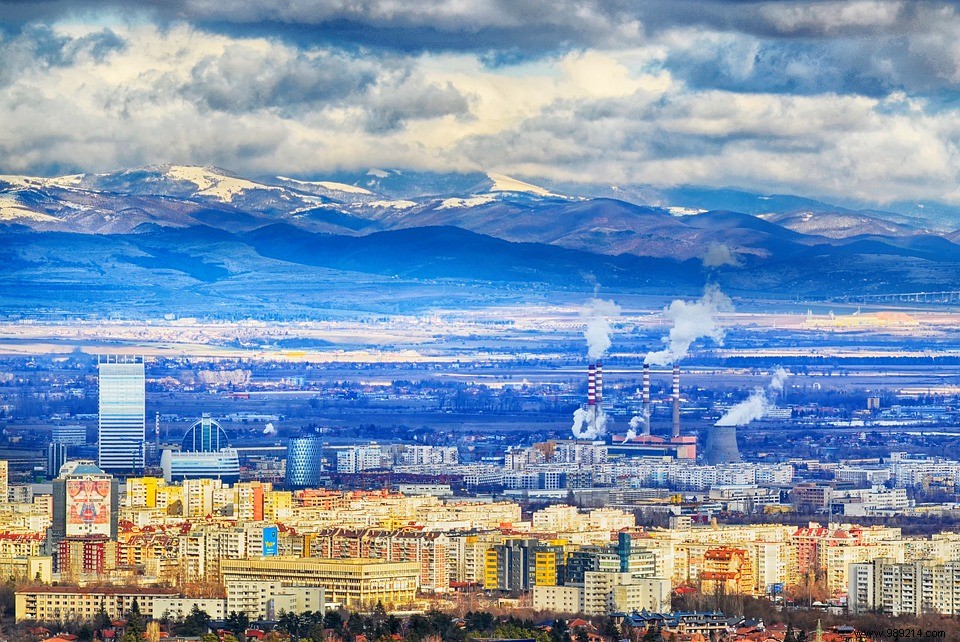As winter rolls around, Bulgarians are concerned about the impact of air pollution on the Covid-19 pandemic . The European Commission wants to sanction a government visibly lacking solutions or motivation to fix the situation.
Located 590 meters above sea level at the foot of Mount Vitosha, Sofia is the capital of Bulgaria. And if confinement has improved air quality everywhere in Europe, its 1.3 million inhabitants are no longer breathing. It must be said that this city is one of the most polluted in the world, occupying 23rd place in the IQ Air 2019 ranking behind Santiago (Chile) and ahead of Tehran (Iran). With the return of winter, Sofia has also returned to its usual thick pollution fog. In recent weeks, the concentration of PM10 has indeed exceeded (in 24 hours) the threshold of 50 μg/m3 set by the World Health Organization (WHO).
Recently, the European Commission also called Bulgaria to order and declared that it intended to take legal action for "systematic non-compliance" with WHO limits. According to the commission, Sofia has not yet really started to put in place concrete measures on the ground. Moreover, the capital is not the only city in the country to face this problem.

Yet the "culprits" are well known, namely the dust from the means of heating charcoal, wood and sometimes even tires, plastic or even old furniture in disadvantaged neighborhoods. Let's also mention the particulate emissions from a rather aging vehicle fleet.
The difference between the current situation and those of recent years is the combination between air pollution and the current SARS-CoV-2 coronavirus pandemic. According to Bulgarian pulmonologist Alexandar Simidtchiev, fine particle pollution affects all the organs of the body. However, this same pollution acts in synergy with Covid-19. As soon as fine particles enter the respiratory system, they attack the lungs as well as the heart. However, this can aggravate the effects of the coronavirus, but also facilitate its penetration into the cells of the body.
While Bulgaria has a Covid-19 toll of around 175,000 cases for more than 5,400 deaths, the country still reported 983 deaths between the December 1 and 7, 2020 . Originally resistant to restrictions, the conservative government of Prime Minister Boyko Borissov has finally taken some action. These relate to the closure of restaurants, schools and shopping centers in order to relieve hospitals struggling to keep up with the flow of sick people.